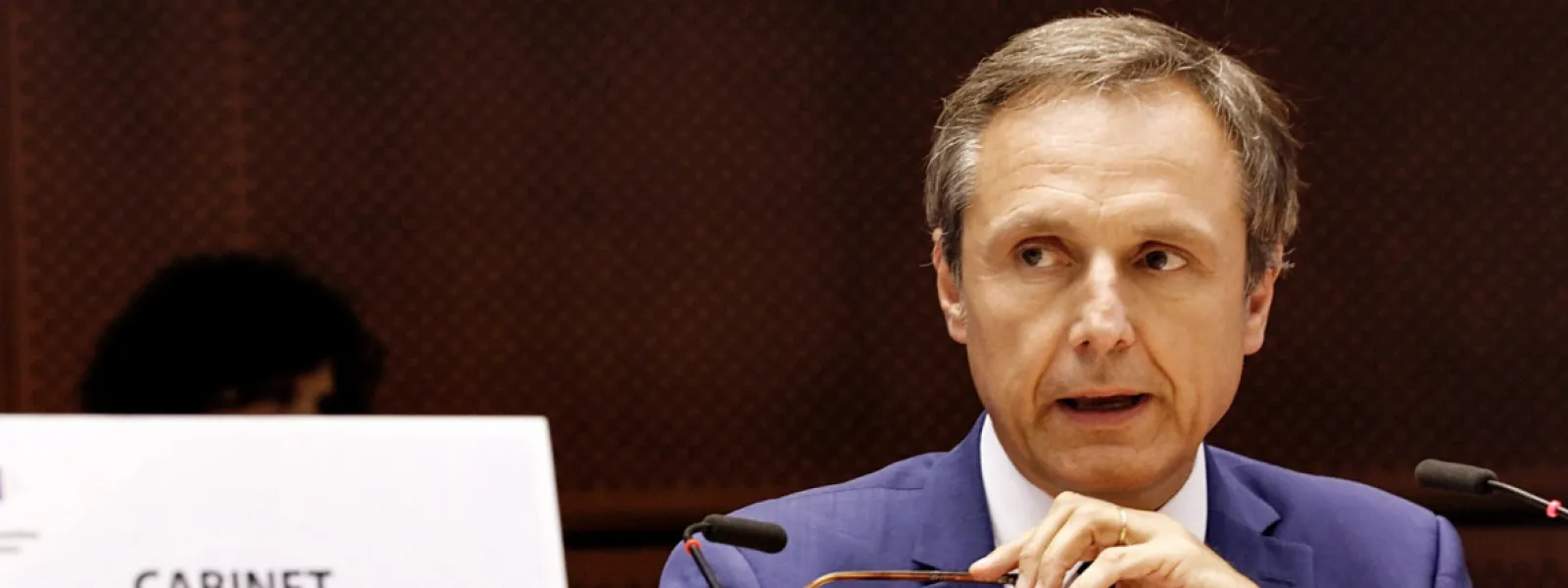Towards a more efficient and democratic decision making in EU tax policy
ECON-VI/045
Towards a more efficient and democratic decision making in EU tax policy
highlighting the views of LRAs on this topic
aiming at influencing the discussion on the move to qualified majority in the field of taxation at Membr States' level.
aiming at influencing the discussion on the move to qualified majority in the field of taxation at Membr States' level.
Commissioner Moscovici welcomed the CoR opinion.
Also the european Parliament call for a move to qualified majority voting in the filed of taxation.
Also the european Parliament call for a move to qualified majority voting in the filed of taxation.
THE EUROPEAN COMMITTEE OF THE REGIONS
- points out that it has already encouraged the Commission to use the passerelle clause to apply qualified majority voting, particularly in tax matters;
- notes the intrinsic link between taxation and democracy insofar as the history of liberal democracies is closely linked to the quest for taxpayers' consent for submitting resources and fiscal expenditure to democratic control, as illustrated by the old adage "No taxation without representation";
- points out that according to a recent study, many firms' tax avoidance strategies have generated revenue losses in the EU estimated at between 50 and 70 billion euros, which includes only loss of revenue due to profit shifting and is equivalent to at least 17% of taxes on corporate income levied in 2013, or between 160 and 190 billion euros if the estimated loss from the individual tax arrangements of the big multinationals is included;
- notes that local and regional authorities are also victims of tax avoidance insofar as local and regional taxes are levied on the basis of the national tax base and in most Member States these authorities receive part of the revenue from national corporate taxes;
- believes that abolishing the unanimity requirement in tax matters would enable the EU to move beyond defending the position of the lowest European common denominator and so to be more ambitious with regard to the international debate on taxation, particularly as regards the OECD's work on digital taxation and profit shifting measures (BEPS);
- supports the principle of the step-by-step approach proposed by the Commission;
- suggests that the Commission propose using the passerelle clause for environmental taxation from the initial stage. It is particularly urgent to introduce a coordinated European approach to taxation in the aviation sector, which does not currently come under any European tax regime, for example with the introduction of VAT on air tickets or a kerosene tax.
- points out that it has already encouraged the Commission to use the passerelle clause to apply qualified majority voting, particularly in tax matters;
- notes the intrinsic link between taxation and democracy insofar as the history of liberal democracies is closely linked to the quest for taxpayers' consent for submitting resources and fiscal expenditure to democratic control, as illustrated by the old adage "No taxation without representation";
- points out that according to a recent study, many firms' tax avoidance strategies have generated revenue losses in the EU estimated at between 50 and 70 billion euros, which includes only loss of revenue due to profit shifting and is equivalent to at least 17% of taxes on corporate income levied in 2013, or between 160 and 190 billion euros if the estimated loss from the individual tax arrangements of the big multinationals is included;
- notes that local and regional authorities are also victims of tax avoidance insofar as local and regional taxes are levied on the basis of the national tax base and in most Member States these authorities receive part of the revenue from national corporate taxes;
- believes that abolishing the unanimity requirement in tax matters would enable the EU to move beyond defending the position of the lowest European common denominator and so to be more ambitious with regard to the international debate on taxation, particularly as regards the OECD's work on digital taxation and profit shifting measures (BEPS);
- supports the principle of the step-by-step approach proposed by the Commission;
- suggests that the Commission propose using the passerelle clause for environmental taxation from the initial stage. It is particularly urgent to introduce a coordinated European approach to taxation in the aviation sector, which does not currently come under any European tax regime, for example with the introduction of VAT on air tickets or a kerosene tax.

